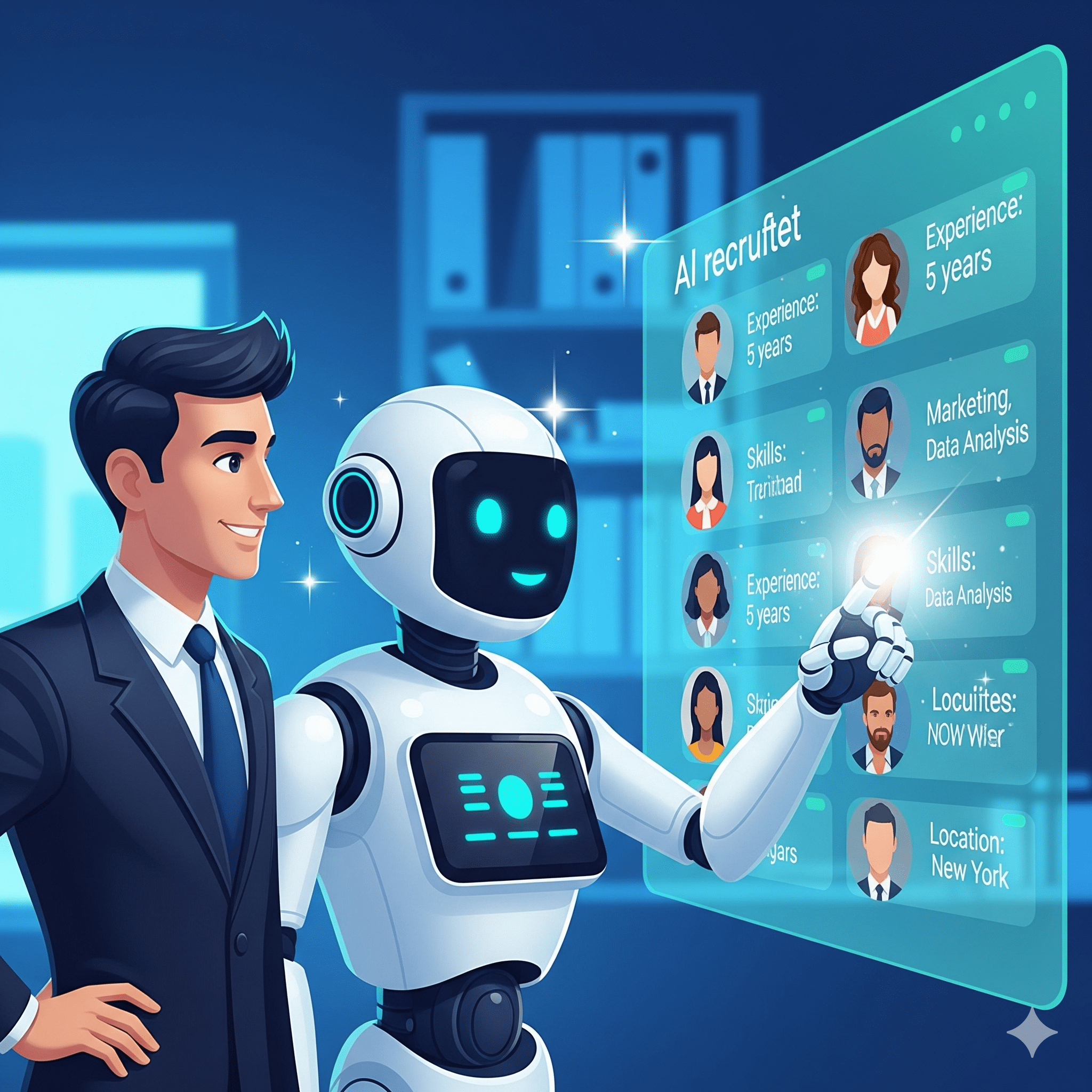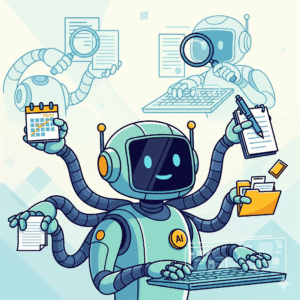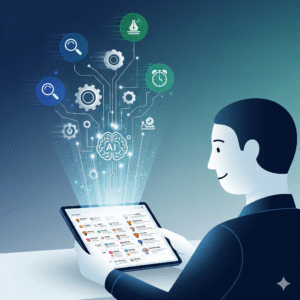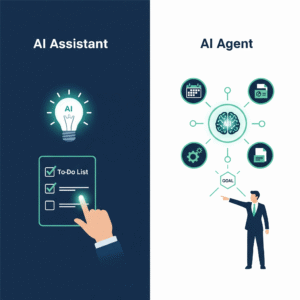Finding great people for a job has always been a challenge. Recruiters used to spend hours searching through résumés and job sites. They were looking for the perfect person. This process was time-consuming, and honestly, a lot of good people were often missed. But today, the game has completely changed. AI for candidate sourcing is redefining how companies find and hire top talent.
Think of AI as a super-smart detective. It can look through millions of online profiles and résumés in seconds. It also finds people with the exact skills and experience a company needs. This powerful tool takes the boring, repetitive work out of the process. This frees up recruiters to focus on what matters most: building relationships with people.
This article will break down how AI is changing candidate sourcing. We’ll show you how it works, look at real-world examples, and give you some tips to get started. You’ll see why using AI is now essential for any successful hiring strategy.
AI in Recruitment Use Cases: Beyond a Simple Search
In the past, recruiters often used simple keyword searches to find candidates. This was like searching for a book by only looking at its title. You might find a book with the right title, but it might not be the right book for you. Similarly, this approach could miss great candidates who didn’t use the exact keywords.
The modern use of AI for candidate sourcing is much smarter. It understands the meaning behind the words. It can also see how skills relate to each other. For example, a recruiter looking for a “Project Manager” might also find a candidate with a background in “Agile Methodologies” and “Team Leadership.” The AI knows that these skills are related and important. This helps recruiters find a wider and better-suited pool of candidates.
Here are some key benefits of this new approach:
- It finds passive candidates: AI can find great people who are not actively looking for a job. This gives companies an edge in a competitive market.
- It reduces bias: The AI focuses on skills and experience, not on a person’s name or background. This creates a fairer and more diverse hiring process.
- It saves a lot of time: The AI automates the initial search. This allows recruiters to spend their time talking to the most promising candidates.
This is just one of the many AI in recruitment use cases that are changing the industry.
AI for Résumé Screening: Finding the Right Match, Fast
Once a job is posted, a company might receive hundreds of applications. Manually reading each one is impossible. This is where AI for résumé screening becomes an invaluable tool. It acts like a digital assistant that can read, understand, and organize every single résumé.
The AI screening tool scans each résumé for key information. It looks for skills, work experience, and educational background. Then, it gives each candidate a score. This score shows how well they match the job description. Importantly, it does this in a neutral way. This helps to eliminate human bias from the initial screening process.
For example, a recruiter can set the AI to look for a candidate with “5+ years of experience” and “proficiency in Python.” The AI will instantly sort all the résumés. It then presents a list of the top candidates. This saves days or even weeks of work. It also ensures that no great candidate is overlooked just because their résumé looked a little different.
HR Technology Trends: Real-World Applications
Many of the world’s most successful companies are already using AI to get ahead in hiring. These examples show how a great AI strategy can lead to real results.
Case Study 1: Unilever’s AI-Powered Hiring
Unilever receives a massive number of job applications each year. They needed a way to manage this without slowing down their hiring. Unilever started using an AI system. This system uses online games and video interviews to assess a candidate’s skills. The AI then analyzes the results and identifies the best candidates. This approach led to a 75% reduction in time-to-hire for some positions. It also helped them hire a more diverse group of people. This is because the AI focused on a candidate’s potential and not their background.
Case Study 2: Hilton Worldwide’s AI Chatbot
Hilton needed a better way to handle a huge volume of applications for entry-level jobs. They wanted to make the process personal. However, they didn’t have enough time to talk to every applicant. So, they created an AI chatbot named “Olivia.” Olivia lives on their website. She answers candidates’ questions instantly. She also helps them with the application process and can schedule interviews. This greatly improved the candidate experience. It also freed up their recruiters to focus on talking to the best candidates.
Case Study 3: The Tech Company’s Talent Forecast
A tech company used to spend a lot of time finding new engineers. They were also struggling to keep their current engineers. The company decided to use an AI tool to help. The AI looked at a lot of data. It predicted which employees might leave the company soon. It also helped the company identify the skills they would need in the future. This allowed them to give their employees more opportunities. The AI also helped them find new talent. This saved the company a lot of money and time. This is a great example of an advanced AI for candidate sourcing tool.
Top Tools for Smarter Sourcing and Screening
There are many great tools available today that can help you implement AI in your recruitment process. Many of these tools offer free trials. This allows you to test them out before you commit to anything.
- Ideal: This tool helps with AI for résumé screening. It automates the screening process. It then ranks candidates based on their skills and qualifications. Ideal also has features that help reduce bias. [See source](https://www.ideal.ai/).
- Eightfold.ai: This is a powerful AI tool for talent management. It helps companies find candidates by matching their skills to a job. It also helps companies find people who are not actively looking for a new job. [See source](https://eightfold.ai/).
- Paradox: This company offers an AI chatbot named Olivia. She is an AI assistant that helps with scheduling and answering a candidate’s questions. She is an excellent tool for improving the candidate experience. [See source](https://www.paradox.ai/).
- Textio: This tool helps you write better job descriptions. It uses AI to analyze the language in your job posts. It then gives you suggestions to make your posts more inclusive. This can help you attract a more diverse group of people. [See source](https://textio.com/).
These tools are at the forefront of HR technology trends. They can help you make your hiring process more effective.
AI for Designers Workflow: From Idea to Masterpiece, Faster
The Future of Sourcing: A Human-Centric Approach
The rise of AI in recruitment is not about replacing people. It’s about empowering them. A report from Gartner suggests that AI will have a neutral impact on jobs in the short term. However, by 2036, it will create over half a billion new jobs. [See source](https://www.gartner.com/en/human-resources/topics/artificial-intelligence-in-hr). AI will automate the tedious parts of the job. This will allow human recruiters to focus on the human parts of the job, such as:
- Building trust: AI cannot build trust with a candidate. A human can.
- Empathy: AI cannot understand a candidate’s feelings or personal story. A human can.
- Strategic vision: AI cannot decide on the long-term vision for a company. A human can.
The future of sourcing is a partnership between humans and AI. The AI handles the data and the boring tasks. The human handles the relationships and the strategy. This partnership will help you find the best people, build a better team, and create a great candidate experience.
Human-Centric AI in HR: Your Blueprint for a Better Workplace



